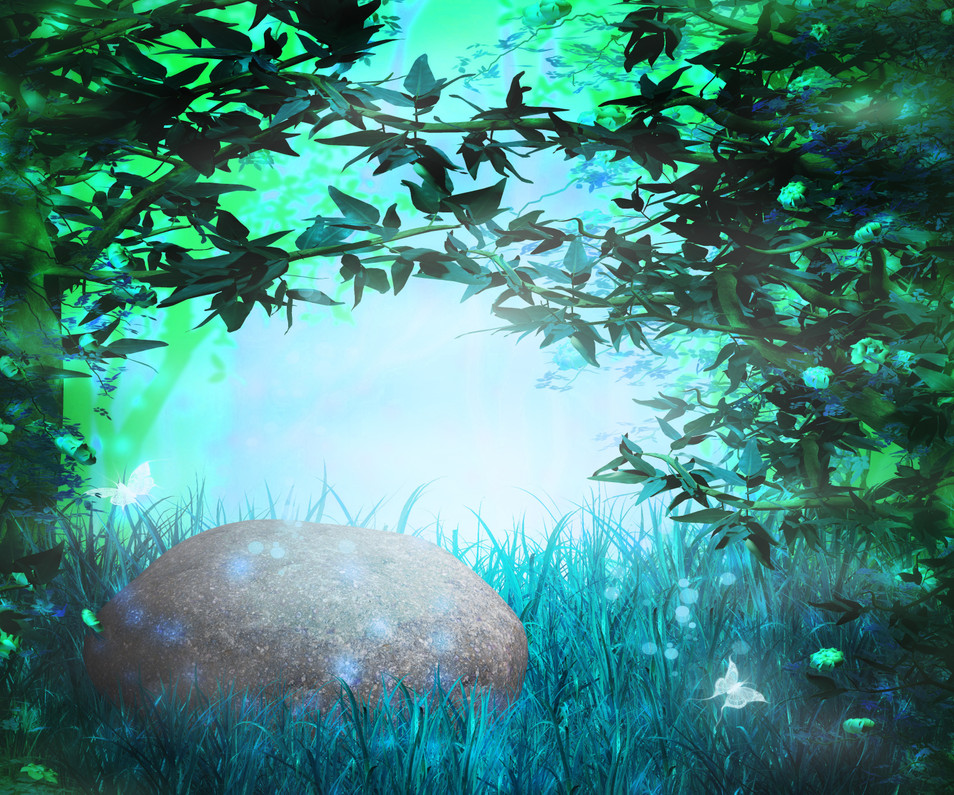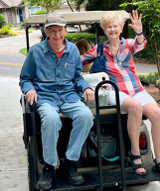GOLDILOCKS GRIEVES
One of my most favorite childhood stories is “Goldilocks and The Three Bears.” I had been given the book by a dear uncle, so for me, it was a treasure. Every time I read it, I felt connected to him. Colorful pictures depicting bowls of porridge, funny rocking chairs, and warm cozy beds enticed me to read the story repeatedly. I think I even memorized each character. That story became part of my personality as I earned the nickname “Goldilocks” from my late husband.
When he was alive, we’d often go to a restaurant for dinner. It would often take me awhile before I got comfortable at a table. I was always looking for the best spot to sit. When we’d go to a Mall shopping, I’d look around for the best parking spot. The same thing would happen whenever we would go to a hotel. My husband would tell me to check out the rooms, while he sat reading a paper in the hotel lobby. “Let me know when you’re settled “Goldilocks,” he’d say with a big smile on his face. The front desk clerk would hand me a few keys and shortly after my pursuit down the halls, I’d return satisfied, give the clerk the room number, and beckon my husband. With a huge grin on his face and knowing I was finally comfortable, we would saunter off to our room giggling about plans for the evening now that “Goldilocks” had completed her need to find the perfect room.
My husband understood me like no other could after all those years of togetherness. I always felt a little guilty causing so much fuss for just a table or a room, but he would just respond with, “it’s in your nature and that’s what I love about you.” It wasn’t until after he died that I realized how much “Goldilocks” had become one of my character traits. As I continued to grieve for losses, I recognized it even more.
The grief process is so individualistic. At the time, my natural tendency was to try many things until I could clarify what was right for me. I couldn’t settle down with the aspect of death until I found out what death was scientifically, spiritually, emotionally, or psychologically. I already knew what death meant physically. Death meant the person was now gone from my life in some tangible form. I also knew there was no return once gone. That, I knew was true, even if I didn’t want to believe it. I didn’t want to accept it, either. I just couldn’t get into a comfortable spot, so “Goldilocks” tried a lot of experimentation before she could say, “This is just right” and settle down to acceptance of what had transpired.
Before my acceptance of death, I sought out grief counselors, spiritual guides, meditation classes, writing courses, and read many books on various subjects. Some of those books took me to other worlds of quantum physics, parallel universes, kabala, and the practice of shamans. Each level of study brought me to a better understanding. At times, I questioned my behavior though. I thought I had gone a little overboard with my “Goldilocks” rendition. I just wanted to answer the question, “where do the decease go when they leave this world?” After all, I was going to join them some day, too!
When I finally addressed the behavior issue to my counselor, he seemed intrigued with how I was handling my grief process on an intellectual level. Since I was in the field of education, asking questions to seek answers was appropriate. The way I went about dealing with death seemed very normal to him. I felt relief that I was sane. “It is in your nature to go that route” he responded, smiling. I felt a confirmation of what my late husband knew. I was doing what “Goldilocks” would have done. I wanted to find a comfortable spot to understand, accept, and work through my grief. Grief was like a pendulum in my head, swinging between logic and story telling. All I had to do was accept both aspects of my psyche for it to stop. Finally, I felt comfortable with my search, knowing it was just right for me. I was sane.
After awhile, I realized I had absorbed, as well as reflected on grief in an unusual, refreshing way. I had come much closer to acknowledging, “Life is lived on life’s terms,” not the fantasy of a childhood fairy tale. Fairy tales absorbed as youngsters often create a different worldview from the learned experiences of adults. Still, our uniqueness draws us to use those fairy tales to adjust and adapt to life events, especially death. Countless numbers of individuals have “wished upon a star, kissed their princesses or princes to awaken them, or deified others to everlasting lives” in order to cope with their losses. It’s part of the continued connection we need that occurs in our nature. It’s a part of still keeping loved ones in our lives. It’s a part of our stories.
Just as I recall my uncle every time I read “Goldilocks and The Three Bears,” I recall my spouse whenever I tell people about my earned nickname. Most of the time, I am preparing them for my personality, so they can understand me a little better. I even tell them I’m a bit of a “Dorothy” too, when I get homesick for those I love. “It’s just part of my nature,” I tell them. “What are your favorite fairy tales?” In asking that question, I get to appreciate and know some of their nature, too.
About the Author------
Mary J.Nowyj has a degree from Syracuse University, MA in Communication Skills. She taught at Onondaga Community College. Mary is the previous Historian for the town of Onondaga, where she has resided for forty-two years.
She enjoys exploring/traveling, theater, and writing. She is also a volunteer at Hope For Bereaved Center in Syracuse, New York.




